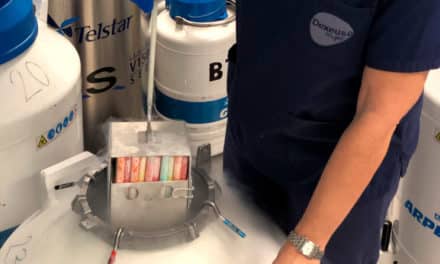Everyone knows that playing sports is beneficial to health, but not that it reduces the risk of developing cancer, and that in people who have had this disease it protects against possible relapses and helps to better face the treatment. It is very good news! And many scientific studies prove it. The World Health Organization corroborates it and offers practical recommendations for different age groups (see box at the end).
However, not all oncologists advise their patients to play sports, and, although advised, only a third of them follow the recommendations of their doctor. So, on the occasion of World Cancer Day, which is celebrated Tuesday, we have decided to dedicate this week’s post to this topic. Dr. Rafael Fábregas, specialist of Gynecologic Oncology and Mastology of our centre, tells us why doing exercise helps prevent cancer, what activities are the most advisable, and how and when you can start practising.
The first question is: Why its protective action? Doing exercise reduces the hormonal concentration in blood – some breast cancers, for example, are of hormonal origin – and combats inflammatory processes that are associated with the development of this disease. Moreover, it helps regulate insulin levels (sugar), prevents sedentary lifestyle and weight gain, three elements that are considered cancer risk factors. On the other hand, it has multiple positive effects on our mood, which helps to deal better with any disease, and also reduces anxiety, improves mobility and balance, helps maintain bone density and muscle mass, increases resistance, relieves pain, boosts self-esteem, provides energy and helps you sleep better. You can’t ask for much more!
Does it protect against all types of cancer? Practically, yes. If we talk about cancers that affect women, it has been observed that it has a protective action against breast, endometrial and uterine cancer. In the ovary it has not been possible to confirm it so clearly, because this type of cancer is more complex and less frequent. As for the rest, its beneficial effect has also been observed in cancer of the lung, rectum, colon, bladder, prostate, stomach, myeloma, intestine …
What kind of sports activities are the most recommended? Aerobic exercises, such as walking, running, dancing, swimming or cycling, that mobilize joints and make the muscles of different parts of the body work. Such exercises require the heart to pump faster to increase blood flow and oxygen supply, allowing improved oxygenation of tissues and strengthens the cardiovascular system. In addition, muscle work makes the body burn fat and carbohydrates to get the energy it needs. In the case of breast cancer patients, I especially recommend Nordic walking, because the use of canes also favours the mobility of the arms.
How long should it be practised? It is advised at least three times a week and for about 45 minutes, although it must always be adapted to the ability of each person. Better in the morning, as you are more rested, outdoors – contact with nature also brings well-being – and in a group: it motivates more and is usually more constant. Anyway, both the frequency and intensity are variable and depend on the physical conditions of each woman. And practice should require some effort.
If you are in treatment, when could you start? Normally, unless you have been advised against it, whether you are doing radiotherapy or chemotherapy you can do exercise, and in fact it is recommended, because it helps mitigate the side effects of these treatments, such as nausea, constipation, lack of appetite, increased body fat, loss of strength and muscle mass, feeling of fatigue or decreased desire. But it is preferable to do it a few days after treatment, and avoid spaces that increase the risk of infection – such as crowded water areas and swimming pools – or exercises that require more physical effort, especially if you have a weakened immune system.
Is it advisable to be supervised by a professional? It depends on whether you had already done sports before diagnosis or not, and the type of cancer and treatment. In general, it is always advisable to seek the advice of a specialist, such as the physical therapist, especially if the impact of surgery, chemotherapy or radiotherapy is high and you are not very fit. It is also important to consider the location of the tumour, because the muscles, tendons and ligaments near the surgery or the radiated area may be affected, weakened or more sensitive.
How can you avoid overstressing? In general, for the exercise to be effective, it is important that you notice that you are making an effort, that is, that the heart pumps faster or sweating falls within what is considered normal. But the intensity and duration of the practice must be adapted to age, physical condition and personal circumstances. Therefore, ask a professional for advice and also your doctor. In any case, you should know that it is always better to exercise than to do nothing, no matter how old you are and if you are in better or worse physical form, even if you feel tired. It is also important to start low and gradually increase the pace and time, depending on how you respond and the results.
We hope you found it useful! And if you have questions or want more information on this topic, leave your comments!














